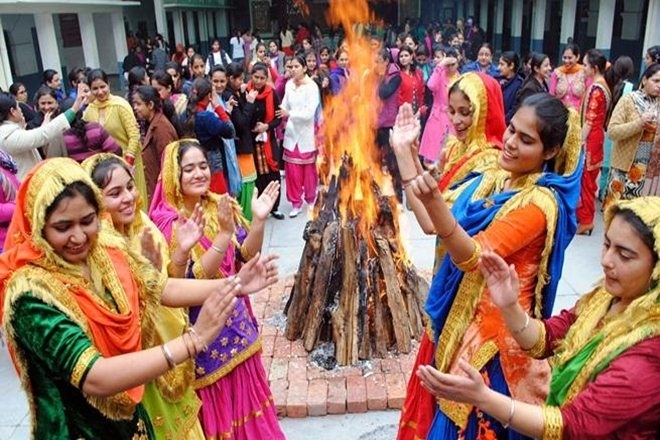Where joys know no bounds! ‘Festival of harvest’ welcomes summer with grand celebrations
Total Views |
New Delhi, January 13: India is blessed with three wonderful seasons and each and every Indian, while enjoying the current season, is eager for the next to come. Lohri, a festival celebrated a day before Makarsankaranti, is a festival that welcomes the upcoming summer season. It is grandly celebrated in North India as the arrival of summer brings smiles to the people facing shivering cold!

Lohri is the ‘festival of harvest’. Farms and fields are spilling over with corn and sugarcane. The sight enthuses farmers to share their bounty with one and all. Bazars and roadside vends offer a variety of revdis, gachchak, popcorn and peanuts. Neighbourhoods resonate with rousing Bhangra drum beats.
Greetings and good wishes to the people of the country on Lohri. May the festival bring happiness, good health and prosperity to everyone's lives.
— President of India (@rashtrapatibhvn) January 13, 2020
Lohri keeps its date on January 13 almost every year. Marking the winter solstice, it is the shortest day and the longest night of the year. The days of the winter season are numbered now. From Makar Sankranti, the day following Lohri, days will grow longer and nights shorter. Lohri is the day to gorge ourselves on sweet and crispy preparations of gur, til and peanuts, as also to bask in the warmth of a crackling bonfire in the company of our kith and kin. For in the spring season which is not far off, we would scarcely have the need to replenish our body heat by such means.
The festival of joy & happiness, #Lohri is celebrated to mark the end of peak winter and also as a harvest fair.
— Department of Water Resources, RD&GR, MoJS, GoI (@DoWRRDGR_MoJS) January 13, 2020
SAVE WATER to celebrate the harvest..!!#Lohri2020 #lohrifestival #lohricelebration #SaveWater pic.twitter.com/SMIqobhRD7
We celebrate Lohri simply because it fulfils a yearning that we feel from the core of our heart – a yearning for freedom. Freedom from the sigdi-warmed, blower-heated stuffy rooms, freedom from the heavily quilted nights and freedom too from the tyranny of the winter that sequesters even the most outgoing among us from outside world.
Lohri is meant to bring everyone out in a matrix of open togetherness and fellow feeling. Even complete strangers are teased to let go of their aloofness and share what they have. Lohri is indeed such a robust tradition that it does not have to fall back upon a sectarian myth to establish its significance. Yet, any festival would lack its charm if it did not have a good narrative to embellish it.
Happy Lohri to everyone. May this festival bring joy, well-being and prosperity in your lives. pic.twitter.com/XlwRd7FRf3
— Rajnath Singh (@rajnathsingh) January 13, 2020
The most popular story about Lohri is that of DullaBhatti. A Rajput of Bhatti clan, Dulla is said to have lived during the times of Emperor Akbar. This brave-heart reputedly saved, at the cost of his life, many a young woman from being sold out in the slave market. It is for the historians to testify to the veracity of the heroics of DullaBhatti, yet the song clearly establishes the moral code of our society. In the substratum of the gaiety of Lohri festival lies the core dictum of safeguarding women’s honour.

